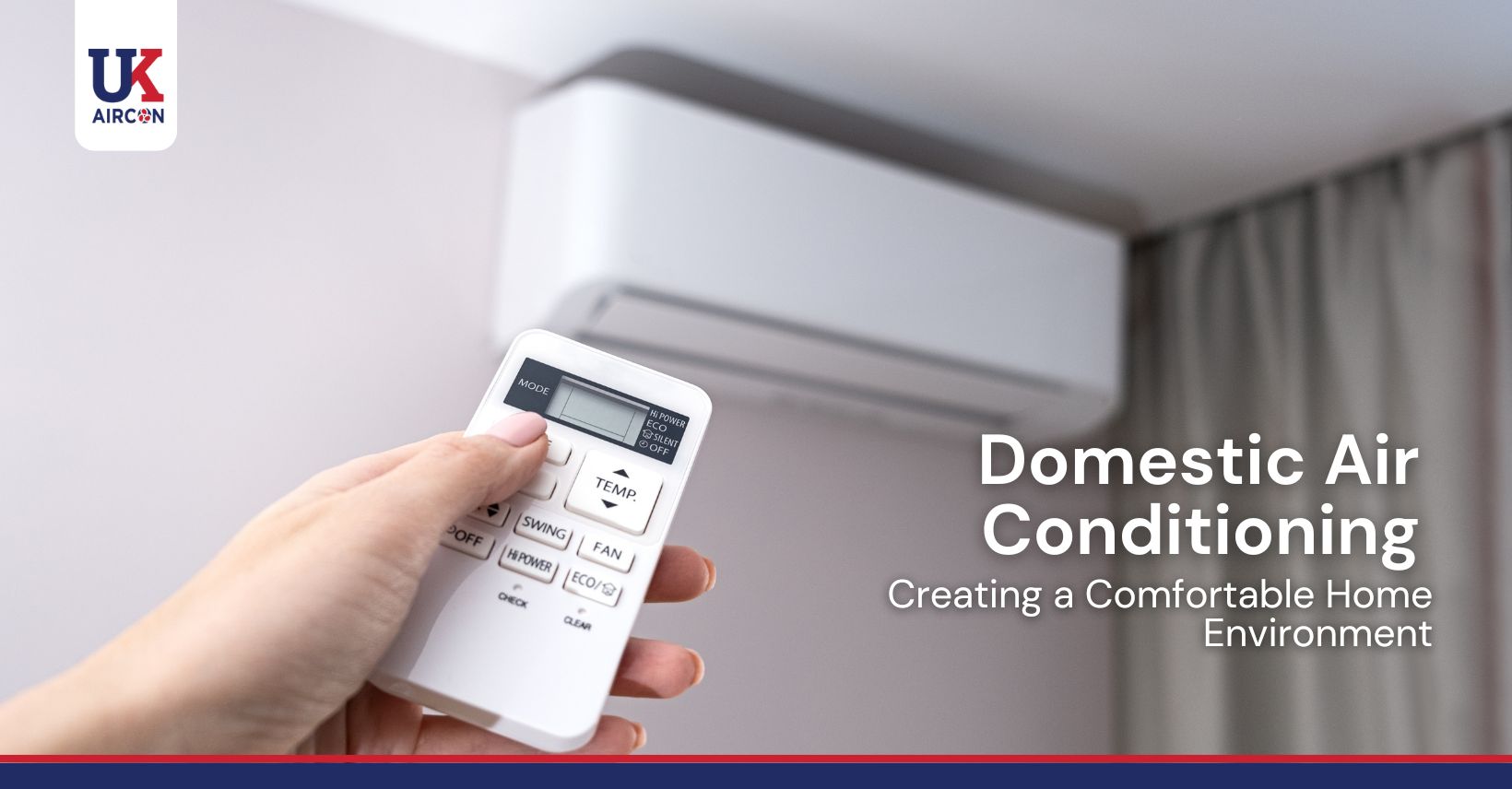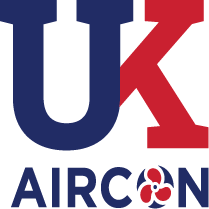Creating a comfortable home environment requires domestic air conditioning to play an important role.
We will explore key systems, maintenance strategies, and efficiency tips for air conditioning in your home.
This comprehensive article covers the importance of domestic air conditioning, how it works, and how to choose the right system for your home.
Enhance your living space with effective air conditioning and master home comfort by gaining all the necessary knowledge.
What Is Domestic Air Conditioning?
Domestic air conditioning refers to using air conditioning systems specifically designed for residential environments to provide cooling and enhance indoor comfort.
These systems draw in warm air, cooled through refrigerants and a compressor. The cooled air is circulated back into the living spaces, reducing the overall temperature and helping control humidity levels.
The appropriate air conditioning system is important for optimal comfort and energy efficiency in your home. Considerations such as home size, insulation quality, and exact cooling needs are vital. The right air conditioning system enhances indoor comfort, enabling relaxation and protection from extreme temperatures. Creating a comfortable living environment underscores why air conditioning is essential for a comfortable home environment.
Why Is Air Conditioning Important for a Comfortable Home Environment?
Air conditioning is essential for maintaining a comfortable home environment. It helps regulate indoor temperature, improve air quality, and ensure residents’ well-being and relaxation.
What Are the Benefits of Air Conditioning?
The benefits of air conditioning include effective cooling, improved air quality, enhanced well-being, and a substantial reduction in indoor humidity levels.
Effective cooling provided by modern air conditioning systems allows you to create a comfortable environment indoors, especially during scorching summer days.
The filtration systems in these units improve air quality. They help eliminate pollutants and allergens, ensuring you breathe cleaner and healthier air.
Maintaining a consistent and pleasant temperature promotes relaxation and contributes to overall happiness and productivity, enhancing well-being.
Reducing indoor humidity levels prevents mould growth and makes the space more bearable, preventing that sticky feeling that high humidity can bring.
Technological advancements by leading brands like Daikin and Mitsubishi Electric have introduced features such as energy-efficient inverter technology and smart sensors.
These advancements enhance system efficiency, leading to cost savings and environmental sustainability. Understanding the mechanics behind these benefits transitions us to the next discussion on How Air Conditioning Works, where we’ll explore the technical foundations that make these improvements possible.
How Does Air Conditioning Work?
Air conditioning systems use advanced technology to remove heat and humidity from the indoor environment, thereby maintaining a cool and comfortable temperature within the home.
What Are the Different Types of Air Conditioning Systems?
Various air conditioning systems are available for domestic use, including central air conditioners, split systems, and window units, each offering special benefits and features.
- Central air conditioners are ideal for larger homes or spaces as they provide consistent cooling throughout the area. Popular brands like Toshiba offer models with advanced features such as energy efficiency and smart thermostats.
- On the other hand, split systems are preferred for their flexibility and zoning capabilities, making them suitable for homes with multiple rooms or varying cooling needs. For better energy savings, brands like Panasonic offer high-quality split systems with inverter technology.
- Window units are more cost-effective and easy to install, perfect for small apartments or single rooms. Fujitsu is a reputable brand known for its reliable, efficient, compact window unit models.
What Factors Should Be Considered When Choosing an Air Conditioning System?
When choosing an air conditioning system for your home, several important factors need to be considered, including:
- the size and layout of your home
- your budget
- the climate in your area
- the installation time and cost considerations
What Is the Size and Layout of Your Home?
The size and layout of your home play an important role in determining the appropriate cooling capacity and type of air conditioning system required for efficient operation.
Assessing the square footage of each room and considering the ceiling height and insulation levels is essential in calculating the total cooling load. This calculation helps select the right-sized AC unit that can effectively cool the entire space without overworking or underperforming. Evaluating the orientation of your home, the number and size of windows, and the presence of shading elements like trees or awnings can further guide you in choosing the most suitable system.
What Is Your Budget?
Your budget is a key consideration when choosing an air conditioning system. It will influence the type and brand of system you can afford and the installation and maintenance costs.
Setting a realistic budget is the foundation of a successful purchase—ensuring you don’t overspend or compromise on quality. Researching different brands like Toshiba, Mitsubishi Electric, and Daikin allows you to compare features, energy efficiency, and warranties.
Obtaining cost estimates from multiple brands gives you a comprehensive view of the market, helping you make an informed decision. It’s vital to balance cost and quality; opt for a reliable brand that offers long-term value, even if it means a slightly higher initial investment.
What Is the Climate in Your Area?
The climate in your area is a significant factor to consider when choosing an air conditioning system, as it will impact the system’s efficiency and effectiveness in maintaining comfortable indoor temperatures.
For instance, if you live in a hot and humid region, you will need an AC system that effectively tackles high temperatures and humidity levels. On the other hand, if you reside in a dry climate, the focus might be more on cooling without adding extra moisture to the air.
Brands like Fujitsu and Panasonic are at the forefront of developing climate-exact air conditioning technologies. They incorporate variable-speed compressors and multi-stage filtration systems that enhance performance and energy efficiency to exact environmental conditions. Such innovations underline the importance of regular maintenance to preserve these advanced features. Next, we will explore effective strategies for maintaining your air conditioning system to ensure sustained efficiency and performance.
How Can You Maintain Your Air Conditioning System?
Regular maintenance is important for maintaining your air conditioning system’s efficiency, reliability, and performance. This involves routine upkeep and occasional checks by professional HVAC contractors to prevent breakdowns and prolong the unit’s lifespan. Understanding these tasks is key, so we will explore the common maintenance tasks required for optimal operation.
What Are Some Common Maintenance Tasks?
Common maintenance tasks for air conditioning systems include cleaning or replacing filters, checking refrigerant levels, and inspecting the system for any signs of wear or damage.
Regularly cleaning or replacing filters is important to ensure proper airflow and prevent dust and debris build-up, which can strain the system and reduce efficiency.
Checking refrigerant levels is essential for optimal cooling performance. Low levels can indicate a leak or improper functioning, impacting the system’s ability to cool effectively.
Inspecting the system for wear and damage helps identify issues early on, preventing costly repairs and ensuring smooth operation.
How Often Should Maintenance Be Performed?
An air conditioning system should be maintained at least once a year to ensure optimal performance and efficiency, preferably before the cooling season.
Regular maintenance ensures smooth operation and prolongs the lifespan of your air conditioning system. By consistently performing upkeep, you prevent breakdowns and minimize repair costs, saving time and money. Seasonal check-ups are vital for early detection and resolution of potential issues, enhancing system efficiency and reducing energy costs. This focus on maintenance directly supports strategies to improve the efficiency of your air conditioning system, which we will explore next.
How Can You Improve the Efficiency of Your Air Conditioning System?
Enhancing your air conditioning system’s efficiency reduces energy consumption and boosts performance, creating a more comfortable, cost-efficient home environment. This improvement is important for optimal system operation. Next, we will explore Some Tips for Improving Efficiency, which provides practical advice on maximizing your air conditioner’s effectiveness.
What Are Some Tips for Improving Efficiency?
Some tips for improving the efficiency of your air conditioning system include using programmable thermostats, sealing windows and doors, and ensuring proper insulation in your home.
Regular maintenance is important for the efficiency of your air conditioning unit. Frequently cleaning or replacing filters ensures optimal airflow and performance. Moderating your thermostat settings when away can significantly cut energy usage. Also, opting for a high-efficiency air conditioning model reduces energy bills and benefits the environment. These measures enhance your system’s effectiveness, contributing to a cooler home and lower costs. This approach is essential for mastering home comfort with effective air conditioning, as we will explore in the conclusion.
Conclusion: Mastering Home Comfort with Effective Air Conditioning
Mastering home comfort with effective air conditioning involves understanding the key systems, implementing proper maintenance strategies, and adopting efficiency tips to ensure a comfortable and healthy indoor environment.
Regarding selecting the right air conditioning system for your home, it’s important to prioritize reliability and efficiency. A reliable system will ensure consistent performance, while an efficient one will keep your space cool, save energy, and reduce costs.
Regular maintenance plays a vital role in prolonging the lifespan of your AC unit and optimising its efficiency. You can prevent breakdowns and maintain peak performance by scheduling routine check-ups, cleaning or replacing filters, and addressing any issues promptly.
Adopting energy-saving practices such as programmable thermostats, proper insulation, and adequate ventilation can enhance your comfort while minimising environmental impact and utility bills. Go here for more information.

